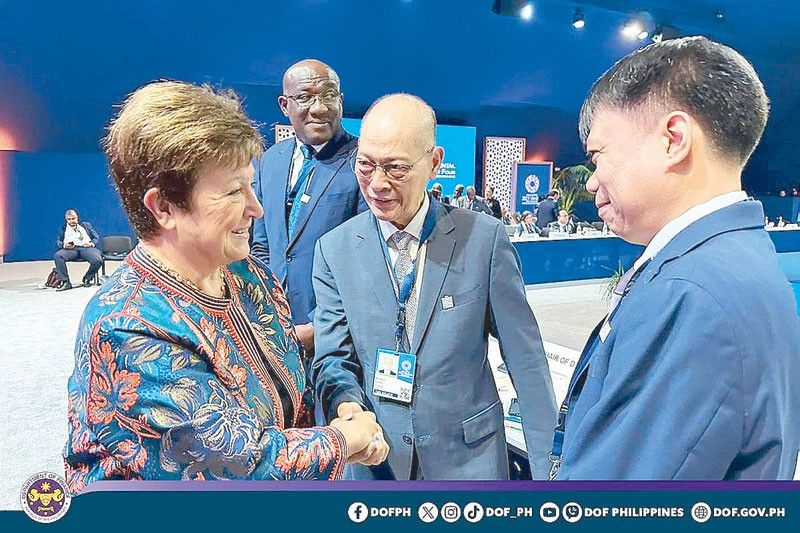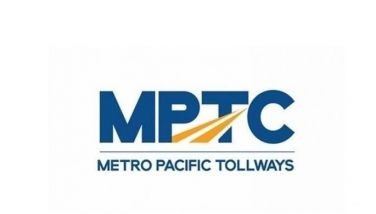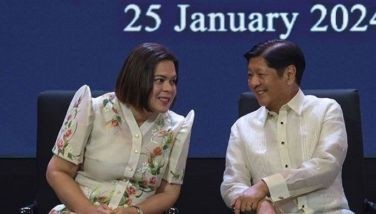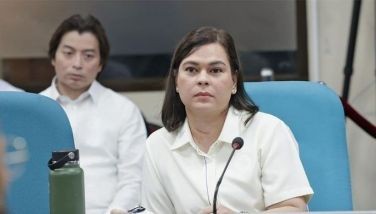Philippines seeks better financing terms from multilaterals

MANILA, Philippines — The Philippines has called on multilateral development banks (MDBs) to come up with better financing terms amid a high interest rate environment and volatile global market.
Finance Secretary Benjamin Diokno said MDBs should introduce reforms, such as increased concessionality in their financing models, as a response to current global challenges.
Diokno issued the intervention during the Intergovernmental Group of Twenty-Four (G-24) Ministerial Meeting on the sidelines of the 2023 Annual Meetings of the World Bank and International Monetary Fund (WB-IMF) in Morocco.
The Philippines serves as the first vice chair of the G-24, alongside Côte d’Ivoire and Argentina. The meeting aims to discuss where international financial institutions can scale up their support to emerging and developing economies.
Diokno said MDBs should make available better financing terms, especially amid rising interest rates and increasing costs of international borrowing.
“The rapid increase in the level of the secured overnight financing rate (SOFR) poses significant risk burdens to countries such as the Philippines,” Diokno said.
The SOFR is the benchmark interest rate for dollar-denominated derivatives and loans.
While there are innovative solutions such as guarantee facilities to enhance MDB lending capacities, Diokno expressed caution on the use of hybrid capital on the borrowing cost of member countries in consideration of the high interest rates globally.
“We welcome the proposed additional measures that could further increase the World Bank’s financing capacity, especially toward providing concessionality for low and middle-income countries,” Diokno said.
He emphasized that the lending capacity of MDBs was stretched due to COVID and the post-pandemic recovery.
Such a situation also threatens their ability to respond to ongoing crises, including climate-related hazards, food insecurity, public health risks and learning poverty.
Diokno also urged MDBs to provide more concessional financing for climate adaptation and mitigation projects in support of up to $6 trillion investment requirement for the global transformation to a low-carbon economy.
This amid the increasingly intensifying climate crisis and the inordinate costs climate-vulnerable countries such as the Philippines have to bear.
“Better concessionality in climate finance is a necessary step towards climate justice,” he said.
Meanwhile, the body approved the G-24 Communiqué, a written statement that conveyed the position of the members on reforming the financial models and terms of MDBs to ease access to financing, and enhancing the voice and representation of member countries.
It also covered promoting durable debt resolution measures to address debt distress, amplifying support for climate finance, encouraging effective domestic resource mobilization for sustainable development financing, and supporting a robust multilateral trade system.
Diokno was also introduced as the new G-24 chairperson for this year and next.
The G-24 coordinates the position of developing countries on monetary and development issues in the deliberations and decisions of the World Bank and IMF.
Apart from the Philippines, other G-24 members include Algeria, Argentina, Brazil, Colombia, Congo, Côte d’Ivoire, Ecuador, Egypt, Ethiopia, Gabon, Ghana, Guatemala, Haiti, India, Iran, Kenya, Lebanon, Mexico, Morocco, Nigeria, Pakistan, Peru, South Africa, Sri Lanka, Syria, Trinidad and Tobago, Venezuela and China.
- Latest
- Trending































